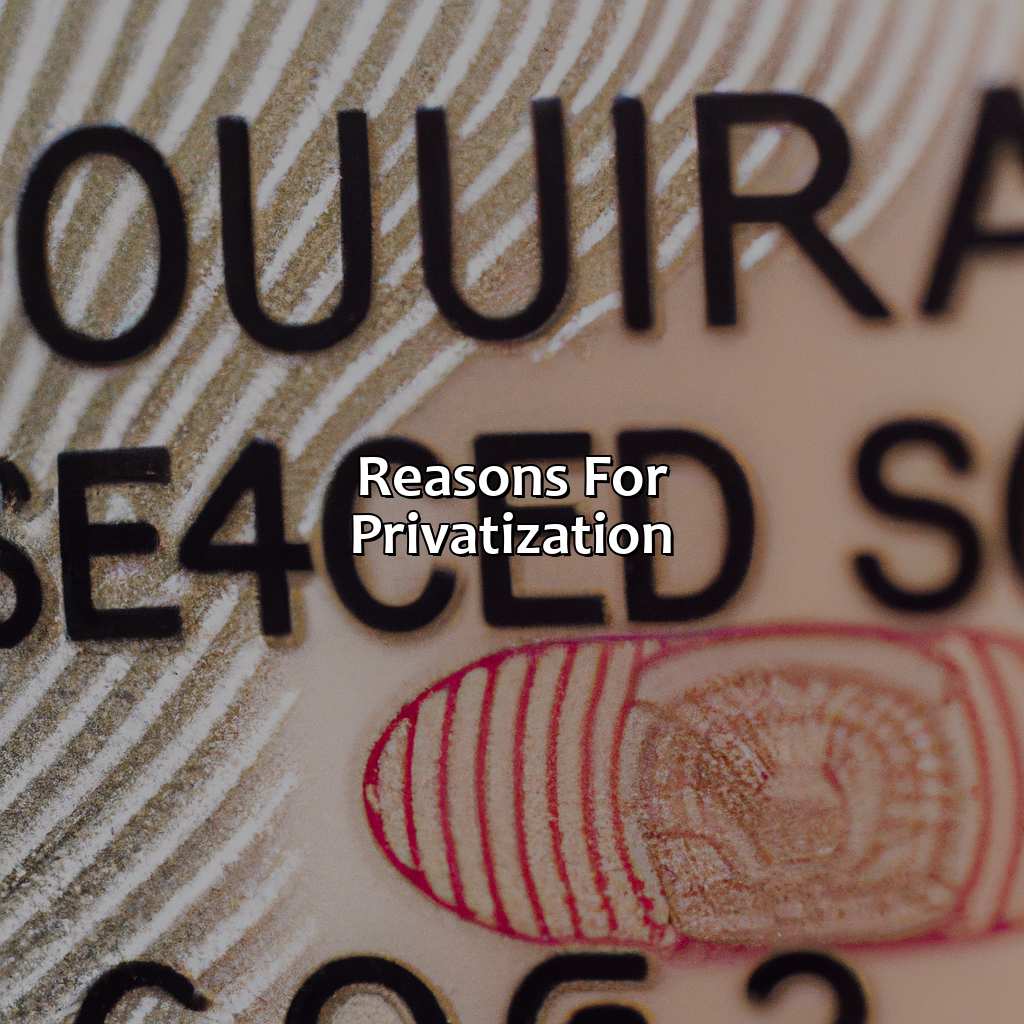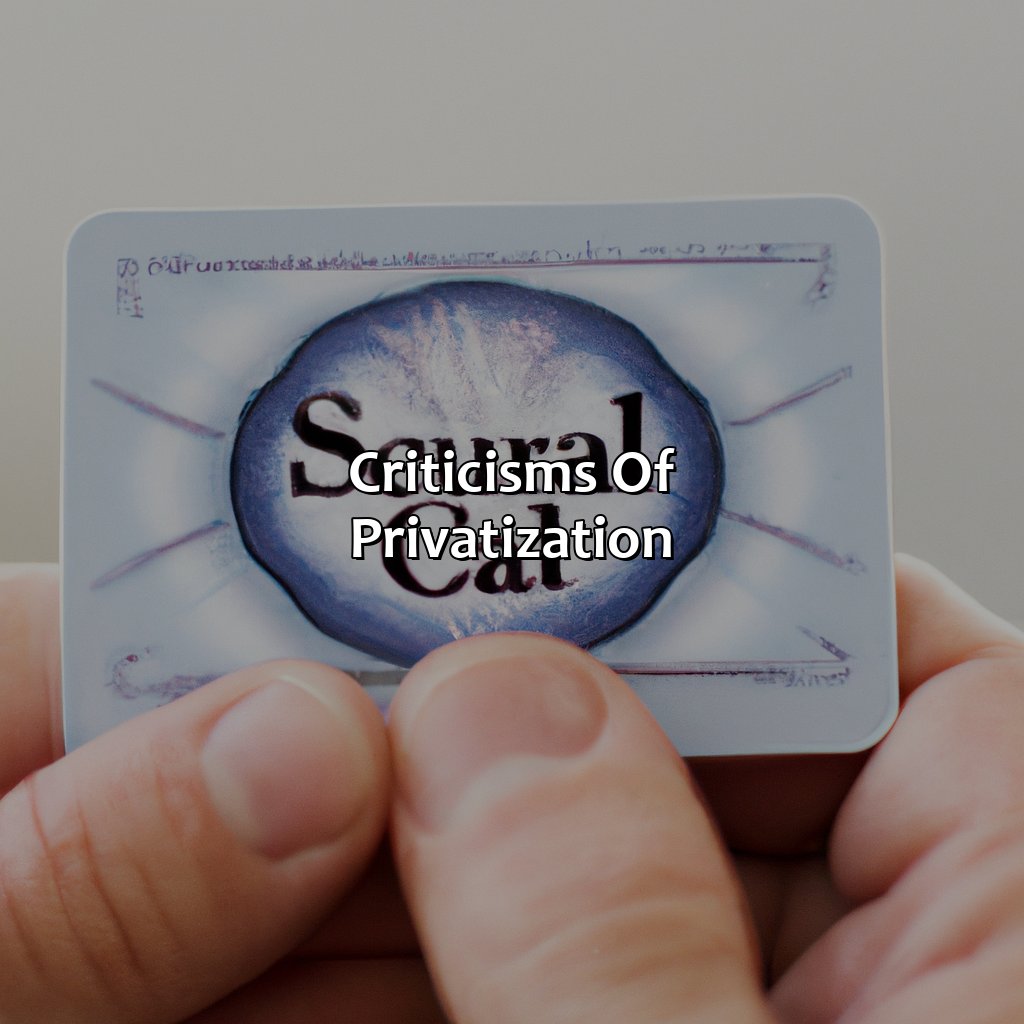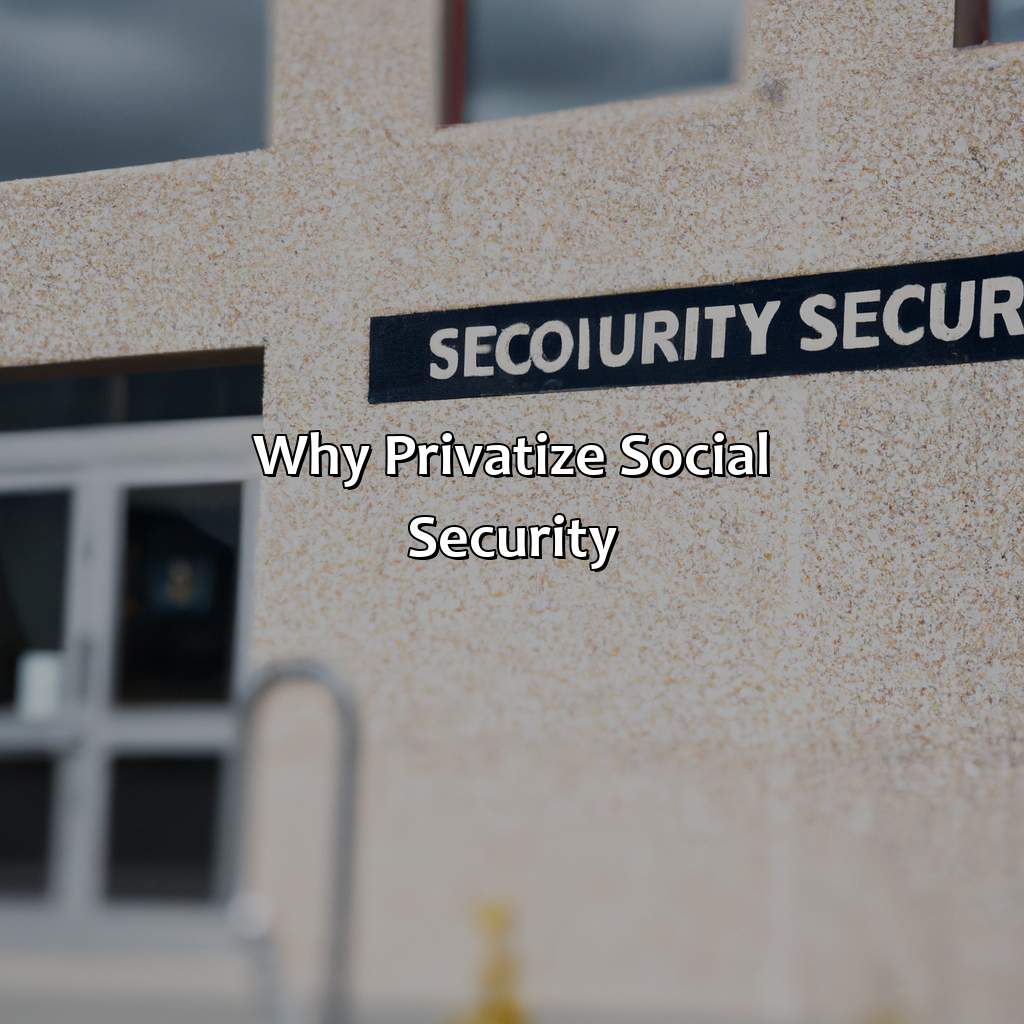Why Privatize Social Security?
Key Takeaways:
- Privatizing social security can provide economic benefits, individual control and choice, and better investment returns.
- However, privatization can also pose risks to retirement funds and lack guaranteed benefits.
- Alternatives to privatization include strengthening social security and increasing retirement savings.
Are you concerned about your financial security in retirement? Privatizing social security is one option that could ensure your peace of mind. Discover why this reform could be the key to a more secure retirement.
Reasons for Privatization
Social Security Privatization: Why It May be Considered
The potential reasons for privatizing Social Security have been a topic of debate among policymakers and economists alike. One reason is that Social Security faces a long-term funding gap, and private accounts could generate higher returns. Additionally, proponents argue that private accounts would allow individuals to have more control over their retirement savings and potentially provide greater incentives to save for retirement. However, critics of privatization raise concerns over the potential risks and market volatility associated with private investments, which could result in higher costs and lower returns for retirees.
Moreover, privatization could impact certain segments of society differently, potentially exacerbating social and economic inequality. For example, lower-income and marginalized groups may have limited access to the resources, information, or expertise needed to make informed investment decisions.
One relevant case study was the privatization of Social Security in Chile in the 1980s. While it was initially hailed as a success, the system faced significant challenges in the following decades, including high administrative costs, low returns, and widespread fraud.
Overall, while privatization may offer some benefits, it is not without risks and broader societal impacts that deserve careful consideration and evaluation.

Image credits: retiregenz.com by James Jones
Criticisms of Privatization
Privatizing social security has been a hot topic for a long time. Those against it believe that privatization would mean that the government would no longer hold the responsibility for its citizens’ retirement funds. This argument states that institutions would only invest in high-risk securities that would increase profits for the company, but put employees in jeopardy. Additionally, it could worsen the wealth gap as those who are wealthier may have an advantage over lower-income individuals.
Moreover, privatizing social security could expose retirees’ investments to market fluctuations which could leave them with inadequate retirement savings. The costs for individuals would generally be greater because privatization would result in the administrative expenses, commissions and fees paid to financial institutions. Critics also argue that this change could lead to a decline in government savings.
Privatization could complete the government’s exit from the retirement security market and put the responsibility entirely on citizens, which could lead to a reduction in social safety net programs.
Pro Tip: Before deciding on whether or not to support privatizing social security, it is wise to consider the potential risks involved and weigh them against potential benefits.

Image credits: retiregenz.com by James Duncun
Alternatives to Privatization
In analyzing possible reforms for social security, the strategy of privatization often emerges. However, many alternative options exist beyond this approach. One such alternative is the expansion of the social security tax base. By increasing the income cap on taxes, the average yearly revenue for social security could drastically rise. Another alternative includes changing the inflation approach used to calculate social security benefits, or refining the benefit formula for low-income workers. These options offer more equitable approaches than privatization.
Furthermore, examining these alternatives highlights the long history and ideological perspectives that have influenced social security reforms. The economic and socio-political conditions of the early 20th century gave rise to this program, and its continual existence confirms its value to society. Among the various political perspectives, the conservative view is for privatization and limited government involvement, while liberal perspectives favor government expansion and pro-active social policy. Ultimately, it is the responsibility of policy-makers to find a fair and sustainable approach to social security that benefits all Americans.

Image credits: retiregenz.com by James Woodhock
Five Facts About Why Privatize Social Security:
Proponents argue that privatizing social security would provide individuals with greater control over their retirement savings. (Source: Investopedia)
The current social security system is projected to experience a funding shortfall in the coming years, which could necessitate changes such as privatization. (Source: Social Security Administration)
Critics argue that privatizing social security could result in higher fees and lower returns for individuals. (Source: AARP)
Privatizing social security could potentially lead to greater market instability and economic risk. (Source: Brookings Institution)
Privatization of social security has been a topic of political debate in the United States for several decades. (Source: Pew Research Center)
FAQs about Why Privatize Social Security?
Why privatize social security?
Ans: The idea behind privatizing social security is to give individuals more control over their retirement savings. Privatization would allow individuals to invest their contributions into their own personal retirement accounts, instead of paying into the government-run social security system. This gives individuals the opportunity to potentially earn higher returns on their investments and have more flexibility with their retirement savings.
How would privatization of social security work?
Ans: Privatization of social security would involve transitioning current and future workers to a system of personal retirement accounts. Instead of paying contributions into the government-run social security system, individuals would be able to invest their contributions into personal retirement accounts managed by financial firms. These accounts would be subject to regulations and guidelines to ensure they remain a safe and secure option for retirement savings.
What are the potential benefits of privatizing social security?
Ans: Proponents of privatizing social security argue that it would provide individuals with greater control over their retirement savings, potentially allowing them to earn higher returns. Additionally, privatization could reduce the burden on the government to provide retirement benefits, which could lead to long-term savings for taxpayers.
What are the potential drawbacks of privatizing social security?
Ans: Critics of privatizing social security argue that it could put individuals at greater financial risk. There are concerns that some individuals may not be well equipped to manage their own retirement accounts or may make risky investments, putting their savings at risk. Additionally, privatizing social security would shift some of the burden of providing retirement benefits from the government to individuals, which could result in disparities in retirement savings among different socio-economic groups.
Has any country privatized social security successfully?
Ans: Yes, several countries have privatized their social security systems with varying degrees of success. Chile is often held up as an example of a successful privatization. In the 1980s, Chile transitioned from a pay-as-you-go government-run social security program to a system of personal retirement accounts. The switch was initially met with some skepticism and resistance, but over time it has been credited with improving retirement savings and reducing the burden on the government to provide benefits.
Is privatization of social security currently being considered in the United States?
Ans: Privatizing social security has been a topic of debate in the United States for many years. There have been proposals to transition to a system of personal retirement accounts, but as of now, no major privatization legislation has been passed.
 Checkout this IRS Loophole
Checkout this IRS Loophole 
